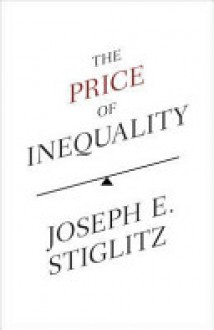The impact of inequality on societies is now increasingly well understood - higher crime, health problems and mental illness, lower educational achievements, social cohesion and life expectancy. But what are the causes of inequality, why is it growing so rapidly and what are its economic impacts?...
show more
The impact of inequality on societies is now increasingly well understood - higher crime, health problems and mental illness, lower educational achievements, social cohesion and life expectancy. But what are the causes of inequality, why is it growing so rapidly and what are its economic impacts? This exceptional book, by one of the world's most celebrated and original economists, provides authoritative answers to these timely questions.Joseph Stiglitz shows how, left to their own devices, markets are neither efficient nor stable and will tend to accumulate money and power in the hands of the few rather than engender competition. He demonstrates how government policies and political institutions, far from countering these trends, often enhance them, and that politics frequently shapes markets in ways that advantage the richest over the rest. The other great contribution of the book is to show how moving money from the middle and bottom of society to the top, far from stimulating entrepreneurship, actually produces slower growth and lower GDP but even more instability.The Price of Inequality provides a powerful critique of free-market ideas, but ends hopefully, arguing that 'another world is possible'. It is one of the most important contributions any economist has made in the public arena in recent years.
show less






 13 years ago
13 years ago




 13 years ago
13 years ago